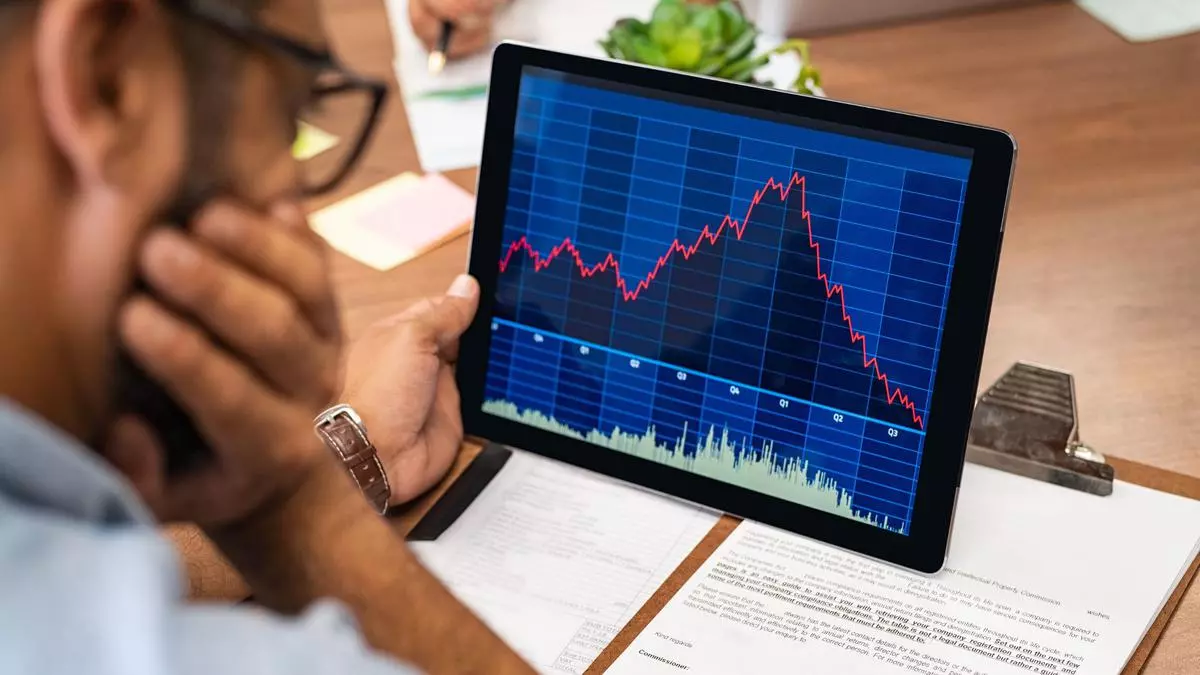Sensex, Nifty to open weak amid global cues and inflation worries
Domestic markets are likely to open on weak note on Wednesday. Negative global cues and unfavourable macro-economic numbers such as inflation and trade deficit figures will keep market under pressure, said analysts. They also advise traders to take note of aggressive selling by foreign portfolio investors in the last few days.
Gift Nifty at 19,380 indicates a gap down opening of about 100 points, as Nifty August futures on Monday closed at 19,478. According to analysts, banking stocks will come under pressure on inflation worries and downgrade warning by Fitch Ratings.
Inflation worries
Market analysts fear that bigger-than-expected July inflation figures of 7.44 per cent will force the RBI to act swiftly on rate front. However, economists believe that since the rise was due to food prices which is seasonal, RBI may adopt wait and watch.
Raghvendra Nath, Managing Director, Ladderup Wealth Management Private Limited, said the inflation breached the RBI’s upper limit of 6 per cent – higher than expected by jumping to 7.44 per cent. “Erratic monsoons over the past months attributed to a steeper-than-expected surge in the prices of vegetables. As seen by the Food and beverage inflation which rose to 10.57 per cent during the month from 4.6 per cent in the previous month. The vegetable prices are expected to stay elevated for quite some time, though fresh market arrivals may help cool down the prices to some extent.”
Madhavi Arora, Lead Economist, Emkay Global Financial Services, The ongoing food price shock has put material risk to the RBI’s and our near term and FY24 CPI forecast. While this could pressure the RBI amid their inflation management mandate, this may not change the RBI’s perspective on inflation on net. Their own research depicts that seasonal increases in episodes of high tomato prices tend to be short-lived – the average duration of a high price episode is ~2.6 fortnights and prices do not ratchet up across these seasonal spells. Overall, the cumulative food price spike will likely peter out by Q3FY24.”
Trade deficit
Merchandise Trade deficit has widened mildly in July to $20.7 billion, led by greater fall in exports (-2% m/m nsa) than imports (0.3%). Fall in exports is worrisome, sa
Aditi Nayar, Chief Economist, Head – Research & Outreach, ICRA Ltd, said: The merchandise trade deficit printed in line with expectations in July 2023, with the YoY decline in commodity prices compressing exports, imports as well as the trade deficit. On a positive note, non oil exports remained steady, even as lower oil exports dampened the overall shipments in July 2023 relative to the previous month.
“Based on the available trends, we expect the current account deficit to widen to $11-13 billion in Q1 FY2024 and further to $15-17 billion in Q2 FY2024, with the monthly trade deficit likely to remain above the $20 billion mark in the next couple of months,” she added.
Global stocks tumble
Following the weak close at the US stocks overnight, most equities across Asia Pacific region are down over 1 per cent. Fitch Ratings downgrade scare weakened the US stocks – all the three major indices Dow Jones Industrial Average, S&P 500 and Nasdaq fell over 1 per cent.
Fitch Ratings Analyst Chris Wolfe warned that the US banking industry has inched closer to another turbulence — the risk of rating downgrades on dozens of US banks that could even include JPMorgan Chase, a report from CNBC said on Tuesday.
